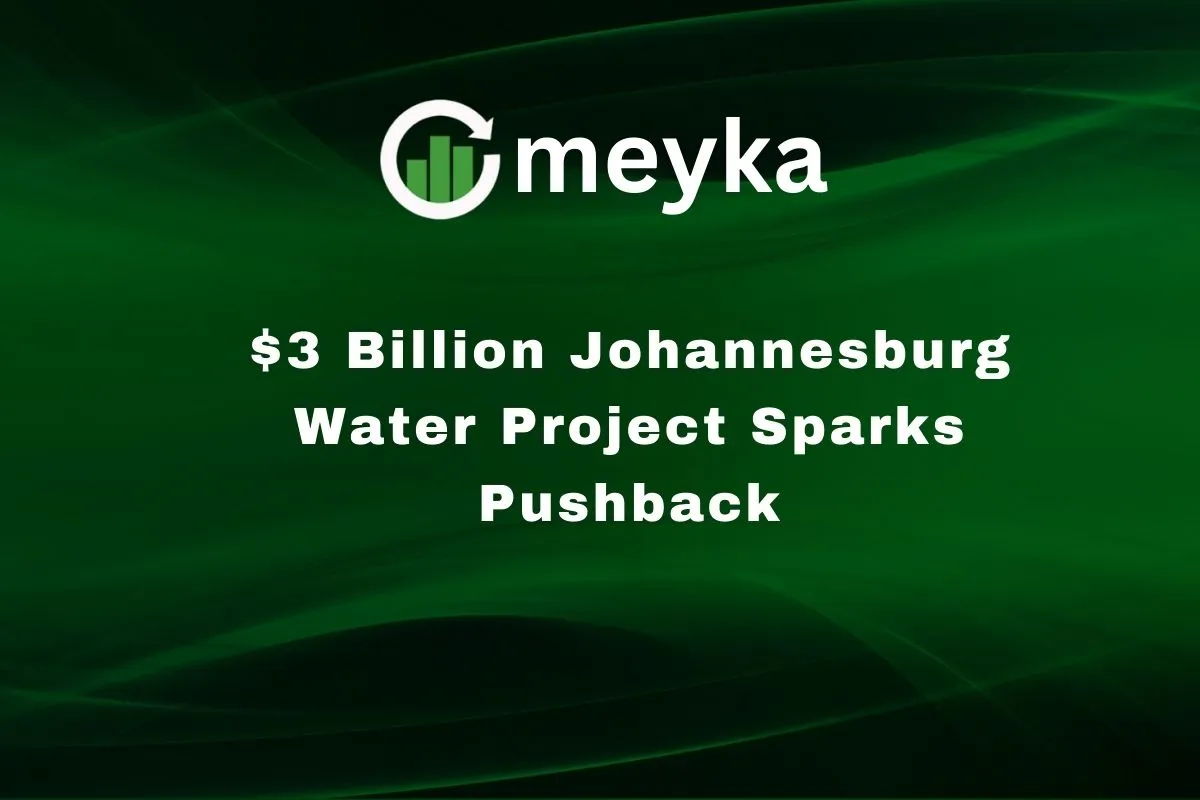$3 Billion Johannesburg Water Project Sparks Pushback
Johannesburg is banking on a $3.1 billion plan to bring water from Lesotho and fix its water crisis. We live in a city where taps go dry, leaks are everywhere, and people struggle every day for enough water. We know how important clean water is, not just for cooking or drinking, but for health, work, and schools. We also know that when so much money is involved, the risks are high. Some say the project could be a game-changer; others worry it may worsen existing problems. In this article, we look at what the plan is, why it came about, what good it might bring, what concerns people have, and what needs to happen for it to really help.
Project Overview
- The project is part of the Lesotho Highlands Water Project. Johannesburg will receive water via a new dam and tunnel system in Lesotho.
- Originally set for completion in 2019, delays have pushed the timeline; currently, the project may finish only around 2030.
- Cost has ballooned; what was budgeted in Lesotho’s currency (rand) is now ≈ 53 billion rand (~US$3.1 billion).
- Stakeholders include the governments of South Africa and Lesotho, communities in Lesotho, international financiers, including the African Development Bank, and legal/environmental groups.
- Key goals: relieve pressure on Johannesburg’s failing water infrastructure, ensure a more reliable supply, reduce outages, and support economic stability.
Drivers Behind the Project
- Growing demand & aging infrastructure: Johannesburg’s population is over 5.5 million. The existing water network is old, with many pipes leaking or bursting.
- Frequent service interruptions: Many parts of the city face regular outages. Hospitals, schools, and homes suffer when the system fails.
- Water losses: About 35-48% of water entering Johannesburg’s network is lost due to leaks, theft, or mismanagement.
- Climate change: Droughts, less predictable rainfall, and evaporation in dams add pressure. Existing reservoirs can’t always meet demand.
Benefits Expected
- If the project works as planned, Johannesburg should have a more secure water supply. That means fewer days without taps, fewer disruptions for business, schools, and hospitals.
- Upgrades and new infrastructure could also reduce water waste (leaks, etc.), which costs the city a lot. Less waste means better use of what we already have.
- The project can create jobs during the building of tunnels and dams, maintaining new infrastructure, and in related services.
- Long-term, a more reliable water system can boost investor confidence. Businesses hate unpredictability. Water supply issues cost money.
Pushback and Criticism
- Cost overruns & delays: The dam and tunnel were meant to be done by 2019, but are now pushed back to 2030. That kind of slippage raises doubts about planning and execution.
- Impact on communities: Lesotho communities near the dam/tunnel works say blasting has damaged homes, there’s poor compensation, lack of clear relocation plans.
- Environmental & social concerns: Tunnel construction, dam building may affect local ecosystems, wildlife, bring health risks (e.g., from dust or water contamination), and may disrupt social life in affected villages.
- Transparency: Some groups say there is not enough public information about the timeline, compensation, and environmental safeguards.
- Financial burden & governance: Johannesburg already faces high losses in its water system due to leaks, theft, and unpaid water. Also, the City sometimes redirects funds from water utilities to other failing public services, leaving water works underfunded.
Political and Public Concerns
- Local political parties and civil society are raising their voices. Some opposition politicians accuse the government of messing up priorities. If millions are spent on big projects but people still lack taps, public trust erodes.
- Some communities in Lesotho have filed complaints via legal/environmental groups (like Seinoli Legal Centre) and want a temporary suspension of project work until harms are addressed.
- Among Johannesburg residents, frustration is rising. When water is unreliable, people struggle with chores, health, and daily routines. Protests over water shortages have happened.
Broader Implications for South Africa
- This project, if successful, could ease the strain on Johannesburg and support much of Gauteng’s economy. Johannesburg contributes heavily to the national economy.
- But failures or mismanagement could weaken faith in large infrastructure projects in other regions. People will watch.
- Lessons here may matter for many African cities: how to balance cost, environmental risk, fairness, community inclusion, and long-term maintenance.
- Foreign funders and banks are paying attention. Poor outcomes could discourage investment; good outcomes may bolster it.
The Road Ahead
- We need strong oversight: independent audits, clear reporting on progress, cost, and environmental/social effects.
- Compensation and relocation plans for affected people in Lesotho must be fair, transparent, and timely.
- Johannesburg must fix its own infrastructure too, reducing leaks, theft, and improving revenue collection. Without internal reform, external solutions may fail.
- Environmental safeguards must be firm. Impact assessments, protecting wildlife, and ensuring water quality downstream.
- Finally, involving communities in both Lesotho and Johannesburg, letting them speak, and giving them information will be essential to building trust.
Conclusion
Johannesburg’s $3-billion water project is a bold move. It tries to solve serious problems: leaks, broken pipes, and unreliable supply. It offers hope, better water, safer households, stronger economy. But it also brings risk: delays, cost overruns, environmental harm, and social injustice. If we want this to succeed, we must demand good governance, transparency, community fairness, and consistent investment. Only then can Johannesburg turn a high-cost gamble into a model for sustainable water access.
Disclaimer:
This content is for informational purposes only and is not financial advice. Always conduct your research.






